Authors & editors
ANU Press has collaborated with a diverse range of authors and editors across a wide variety of academic disciplines. Browse the ANU Press collection by author or editor.
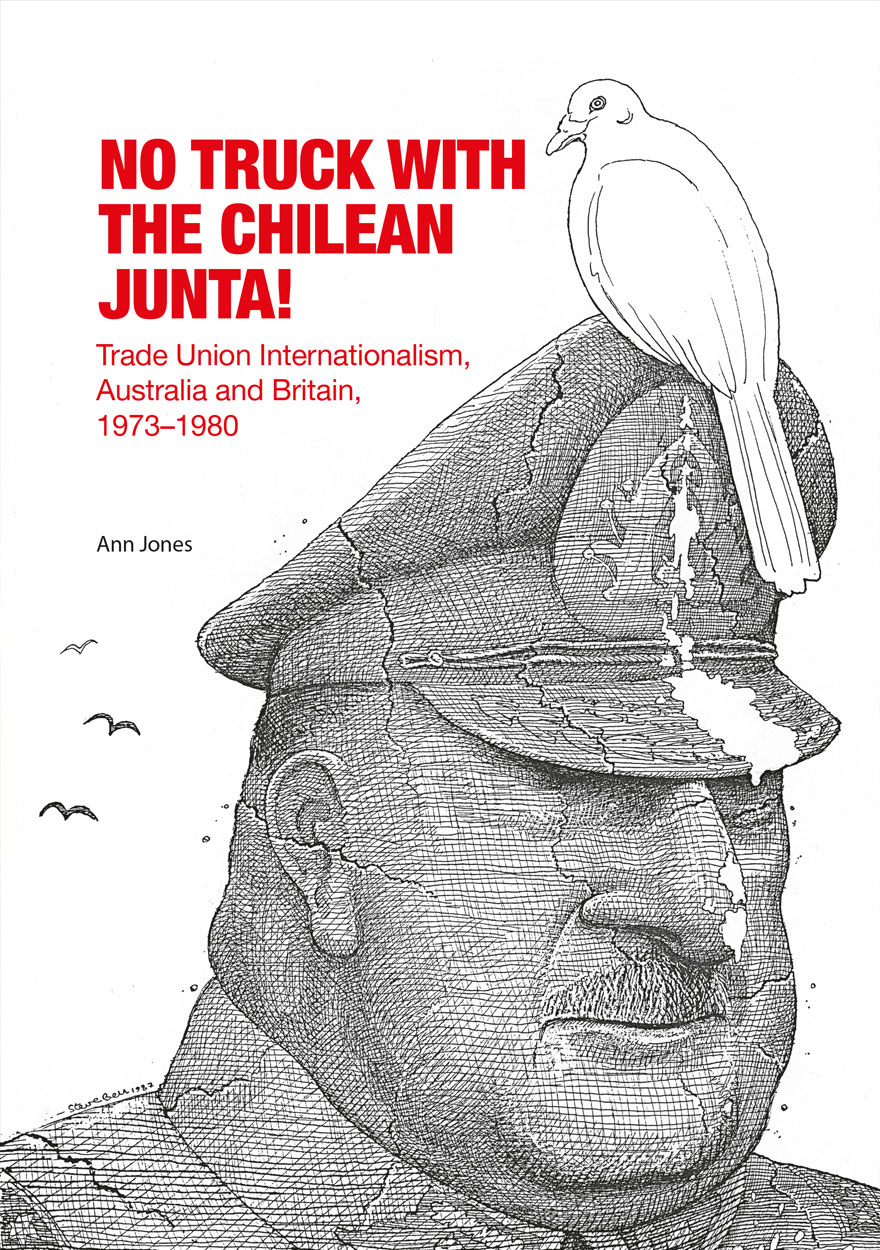
No Truck with the Chilean Junta! »
Trade Union Internationalism, Australia and Britain, 1973–1980
Authored by: Ann Jones
Publication date: August 2014
When lorry drivers in Northampton slapped stickers on their cabs declaring ‘No truck with the Chilean Junta!’ they were doing more than threatening to boycott. They were asserting their own identity as proud unionists and proud internationalists. But what did trade unionists really know of what was happening in Chile? And how could someone else’s oppression become a means to solidify your own identity? The labour movements of Britain and Australia used ‘Chile’ as an impetus for action and to give meaning to their own political expression, though it was not all smooth sailing. Throughout the 1970s, social movements and unions alternately clashed and melded, and those involved with ‘Chile’ were also caught within the unhappy marriage of the cross-cultural left. This book draws together the events and stories of these complex times.

craft + design enquiry: issue 6, 2014 »
Craft • Material • Memory
Edited by: Anne Brennan, Patsy Hely
Publication date: August 2014
craft + design enquiry is an open-access, peer-reviewed journal promoting and disseminating research excellence generated by and about the craft and design sector. craft + design enquiry investigates the contribution that contemporary craft and design makes to society, establishing a dialogue between craft and design practice and cultural, social and environmental concerns. It includes submissions from across the field of craft and design from artists and practitioners, curators, historians, art and cultural theorists, educationalists, museum professionals, philosophers, scientists and others with a stake in the future developments of craft and design.
Download for free
Not available for purchase

The Boy from Boort »
Remembering Hank Nelson
Edited by: Bill Gammage, Brij V. Lal, Gavan Daws
Publication date: July 2014
Hank Nelson was an academic, film-maker, teacher, graduate supervisor and university administrator. His career at The Australian National University (ANU) spanned almost 40 years of notable accomplishment in expanding and deepening our understanding of the history and politics of Papua New Guinea, the experience of Australian soldiers at war, bush schools and much else. This book is a highly readable tribute to him, written by those who knew him well, including his students, and also contains wide-ranging works by Hank himself. –Professor Stewart Firth, ANU.

Deepening Reform for China's Long-term Growth and Development »
Edited by: Ross Garnaut, Cai Fang, Ligang Song
Publication date: July 2014
The Chinese economy has entered a new phase of development in which sources of growth are not so much dependent upon pure increases in labour, investment and credit expansion, but from productivity improvement, structural changes, technological progress and the benefits from improvement of the social security and welfare improvement. When market functions are fully established to become a main channel for allocating resources, the entrepreneurship will flourish engaging in more innovative activities, workers will move more freely and have more incentives to improve their skills, firms will become more productive through market entry and exit, the economic structure will become more balanced because of the improved resource allocation, and in the end, growth will become more spontaneous and sustainable. In this sense, reforms could deliver ‘dividend’ by raising China’s potential economic growth rates.
For China to confront all the challenges it faces at present, the reforms undertaken now have to be deep, comprehensive and far-reaching in order to succeed in paving the way for China to complete the task of transformation in the long-term. There is no better alternative than deepening the market-oriented reform in advancing the course of China’s modernisation for future development and prosperity and lifting China to the status of a developed economy in the next two decades. The recent China update books have covered the topic of reform from different angles and this new book is another attempt to address this important issue.
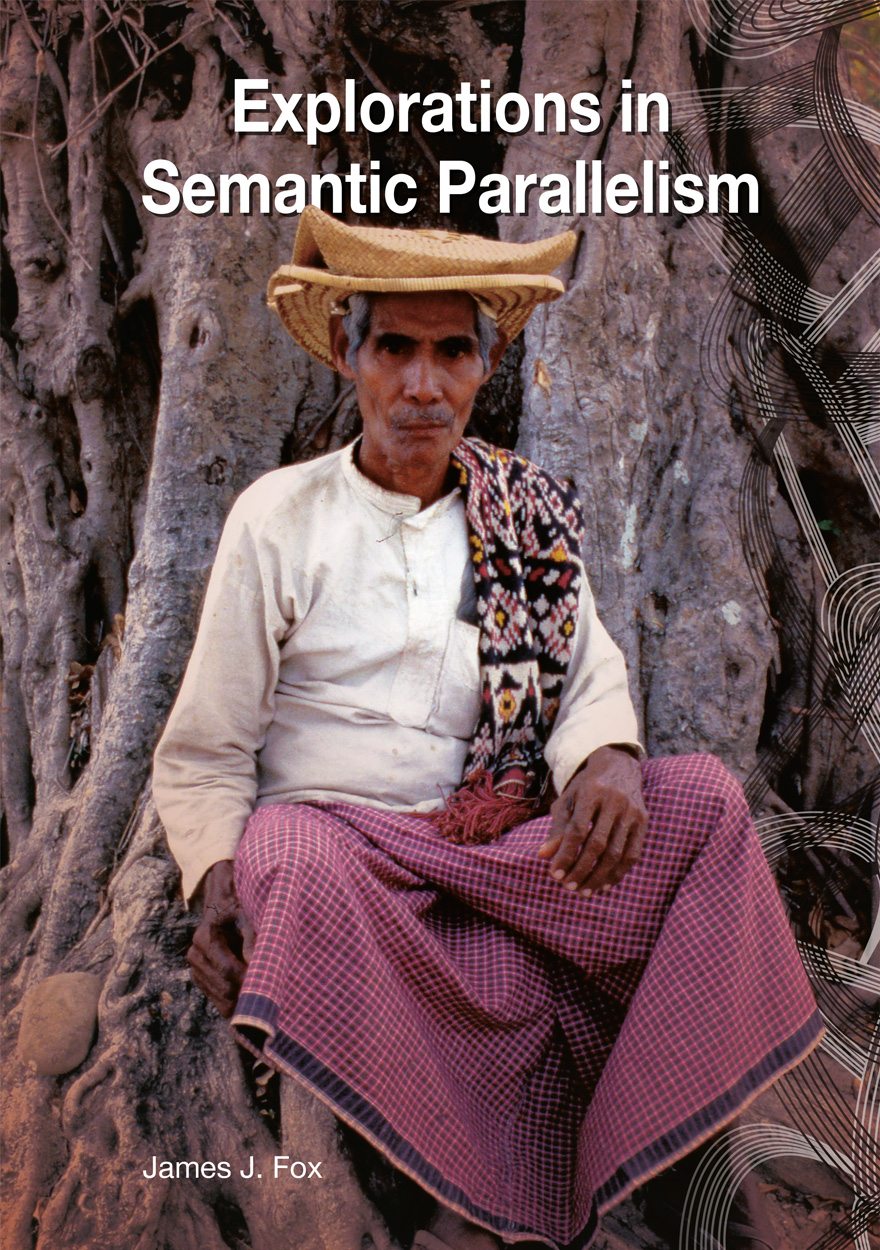
Explorations in Semantic Parallelism »
Authored by: James J. Fox
Publication date: July 2014
This collection of eighteen papers explores issues in the study of semantic parallelism — a world-wide tradition in the composition of oral poetry. It is concerned with both comparative issues and the intensive study of a single living poetic tradition of composition in strict canonical parallelism. The papers in the volume were written at intervals from 1971 to 2014 — a period of over forty years. They are a summation of a career-long research effort that continues to take shape. The concluding essay reflects on possible directions for future research.
Explorations in Semantic Parallelism also offers an enhanced epub: a downloadable ebook format with embedded video. Please download using the link below.

East Asia Forum Quarterly: Volume 6, Number 2, 2014 »
Publication date: June 2014
East Asia Forum Quarterly grew out of East Asia Forum (EAF) online, which has developed a reputation for providing a platform for the best in Asian analysis, research and policy comment on the Asia Pacific region in world affairs. EAFQ aims to provide a further window onto research in the leading research institutes in Asia and to provide expert comment on current developments within the region. The East Asia Forum Quarterly, like East Asia Forum online, is an initiative of the East Asia Forum (EAF) and its host organisation, the East Asian Bureau of Economic Research (EABER) in the Crawford School of Economics and Government in the College of Asia & the Pacific at The Australian National University.
Download for free
Not available for purchase

Future-Proofing the State »
Managing Risks, Responding to Crises and Building Resilience
Publication date: May 2014
This book focuses on the challenges facing governments and communities in preparing for and responding to major crises — especially the hard to predict yet unavoidable natural disasters ranging from earthquakes and tsunamis to floods and bushfires, as well as pandemics and global economic crises.
Future-proofing the state and our societies involves decision-makers developing capacities to learn from recent ‘disaster’ experiences in order to be better placed to anticipate and prepare for foreseeable challenges. To undertake such futureproofing means taking long-term (and often recurring) problems seriously, managing risks appropriately, investing in preparedness, prevention and mitigation, reducing future vulnerability, building resilience in communities and institutions, and cultivating astute leadership. In the past we have often heard calls for ‘better future-proofing’ in the aftermath of disasters, but then neglected the imperatives of the message.
Future-Proofing the State is organised around four key themes: how can we better predict and manage the future; how can we transform the short-term thinking shaped by our political cycles into more effective long-term planning; how can we build learning into our preparations for future policies and management; and how can we successfully build trust and community resilience to meet future challenges more adequately?

Global Water »
Issues and Insights
Publication date: May 2014
This book brings together some of the world’s leading water researchers with an especially written collection of chapters on: water economics; transboundary water; water and development; water and energy; and water concepts.

Dharmalan Dana »
An Australian Aboriginal man’s 73-year search for the story of his Aboriginal and Indian ancestors
Authored by: George Nelson, Robynne Nelson
Publication date: April 2014
A Yorta Yorta man’s 73-year search for the story of his Aboriginal and Indian ancestors including his Indian Grampa who, as a real mystery man, came to Yorta Yorta country in Australia, from Mauritius, in 1881 and went on to leave an incredible legacy for Aboriginal Australia. This story is written through George Nelson’s eyes, life and experiences, from the time of his earliest memory, to his marriage to his sweetheart Brenda, through to his journey to Mauritius at the age of 73, to the production of this wonderful story in the present.
For more information on Aboriginal History Inc. please visit aboriginalhistory.org.au.
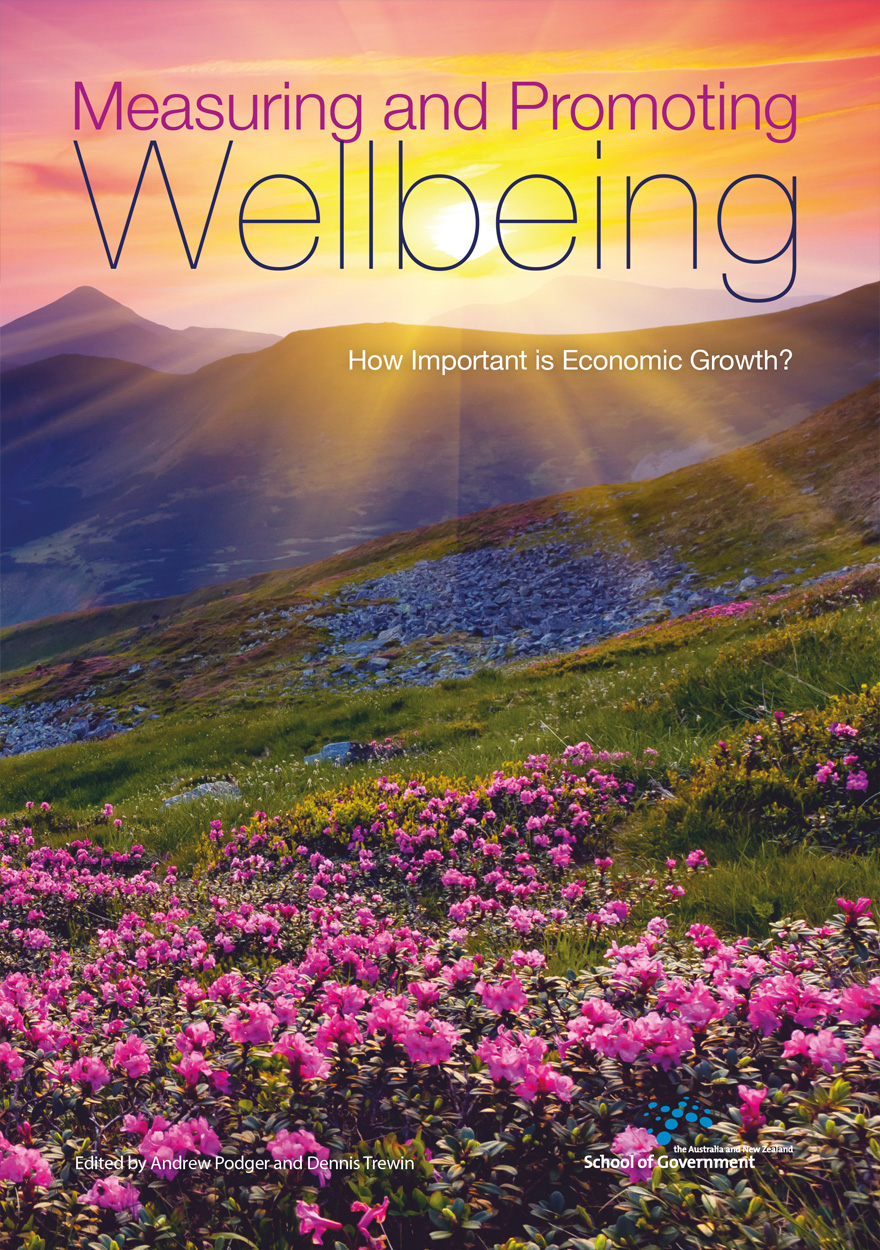
Measuring and Promoting Wellbeing »
How Important is Economic Growth?
Edited by: Andrew Podger, Dennis Trewin
Publication date: April 2014
Australia continues to be at the forefront of international work on measuring and promoting wellbeing, Ian Castles being a significant contributor over the last forty years as an official and academic. This book combines a selection of Castles’ important work with contemporary research from a range of contributors.
The material is in four parts:
1. The role of economics in defining and promoting wellbeing
2. Measuring real income and wellbeing
3. Measuring inequality
4. Climate change and the limits to growth.
The issues canvassed are both long-standing and current. Does economic growth contribute to wellbeing? How different is income to wellbeing? How do we measure societal wellbeing and take its distribution into account? The book will be of value to all those looking to informed debate on global challenges such as reducing poverty, sustaining the environment and advancing the quality of life, including politicians, commentators, officials and academics.

Planning and Managing Scientific Research »
A guide for the beginning researcher
Authored by: Brian Kennett
Publication date: March 2014
Although there are many books on project management, few address the issues associated with scientific research. This work is based on extensive scientific research and management experiences and is designed to provide an introduction to planning and managing scientific research for the beginning researcher. The aim is to build an understanding of the nature of scientific research, and the way in which research projects can be developed, planned and managed to a successful outcome. The book is designed to help the transition from being a member of a research team to developing a project and making them work, and to provide a framework for future work. The emphasis of the book is on broadly applicable principles that can be of value irrespective of discipline. It should be of value to researchers in the later stages of Ph.D. work and Postdoctoral workers, and also for independent researchers.
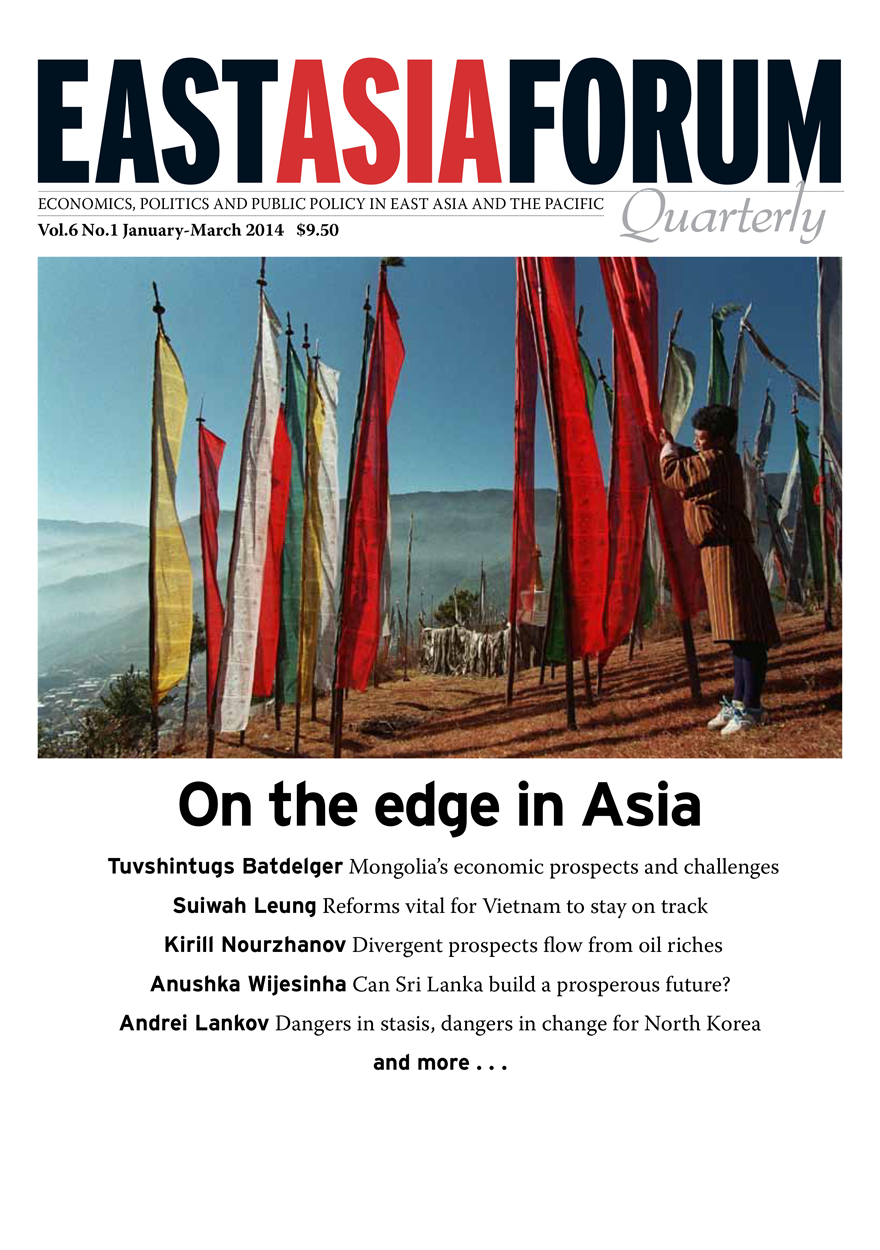
East Asia Forum Quarterly: Volume 6, Number 1, 2014 »
Publication date: March 2014
East Asia Forum Quarterly grew out of East Asia Forum (EAF) online, which has developed a reputation for providing a platform for the best in Asian analysis, research and policy comment on the Asia Pacific region in world affairs. EAFQ aims to provide a further window onto research in the leading research institutes in Asia and to provide expert comment on current developments within the region. The East Asia Forum Quarterly, like East Asia Forum online, is an initiative of the East Asia Forum (EAF) and its host organisation, the East Asian Bureau of Economic Research (EABER) in the Crawford School of Economics and Government in the College of Asia & the Pacific at The Australian National University.
Download for free
Not available for purchase

The Joy of Sanskrit »
A first-year syllabus for tertiary students
Authored by: McComas Taylor, Grazia Scotellaro
Publication date: February 2014
The Joy of Sanskrit is a complete first-year course of twenty-five weeks designed for university students. We teach Sanskrit as a living tradition. This is in recognition of the fact that many of our students have backgrounds in Indic religions and Indian cultural practices, including yoga, art, music, dance and song. As a living tradition, we believe that the reception of language (especially the ability to read), should be balanced with its production (writing, speaking, chanting and singing). With this in view, each weekly unit has three parts: 1. simple Sanskrit conversational patterns, 2. a verse from the oral tradition, and 3. the all-important grammar section. The grammar is based on the textbook Introduction to Sanskrit by Prof. Thomas Egenes. Each week includes introductory videos, audio files to help you with correct pronunciation, and an audio commentary on the text book.
By the end of the course, you will be able to conduct a coherent conversation on a range of simple topics, you be able to chant accurately twenty-six well-known verses, and you will have a good grasp of all the most common grammatical forms, so that you are ready to begin reading simple narratives.
In addition to this Joy of Sanskrit e-text, you will need to purchase Introduction to Sanskrit, Parts 1 and 2. (T. Egenes, Motilal Banarsidass, 3rd edition or later), as it contains all the written exercises and solutions.
The Joy of Sanskrit etext is in ePub format, and you will need multimedia-enabled epub reader to access the video and audio content successfully.
If you have an iPad, iPhone or iPod touch, open The Joy of Sanskrit in iBooks
If you have an Android tablet, you will need this app: epubreader
If you have a Mac, Bookreader Lite works very well
If you are running Windows, you can read the ePub with Azardi, available here: http://azardi.infogridpacific.com/azardi-download.html
You can choose to download the complete Joy of Sanskrit e-text or to download each half as separate files.
This textbook is used as course material in:
Sanskrit 1 SKRT1002
Sanskrit 2 SKRT1003
For more information about studying a language at the ANU, please visit the College of Asia and the Pacific Languages website and take a look at the School of Culture, History and Language’s Language Guide (PDF, 2.2 MB).
Download for free
Not available for purchase
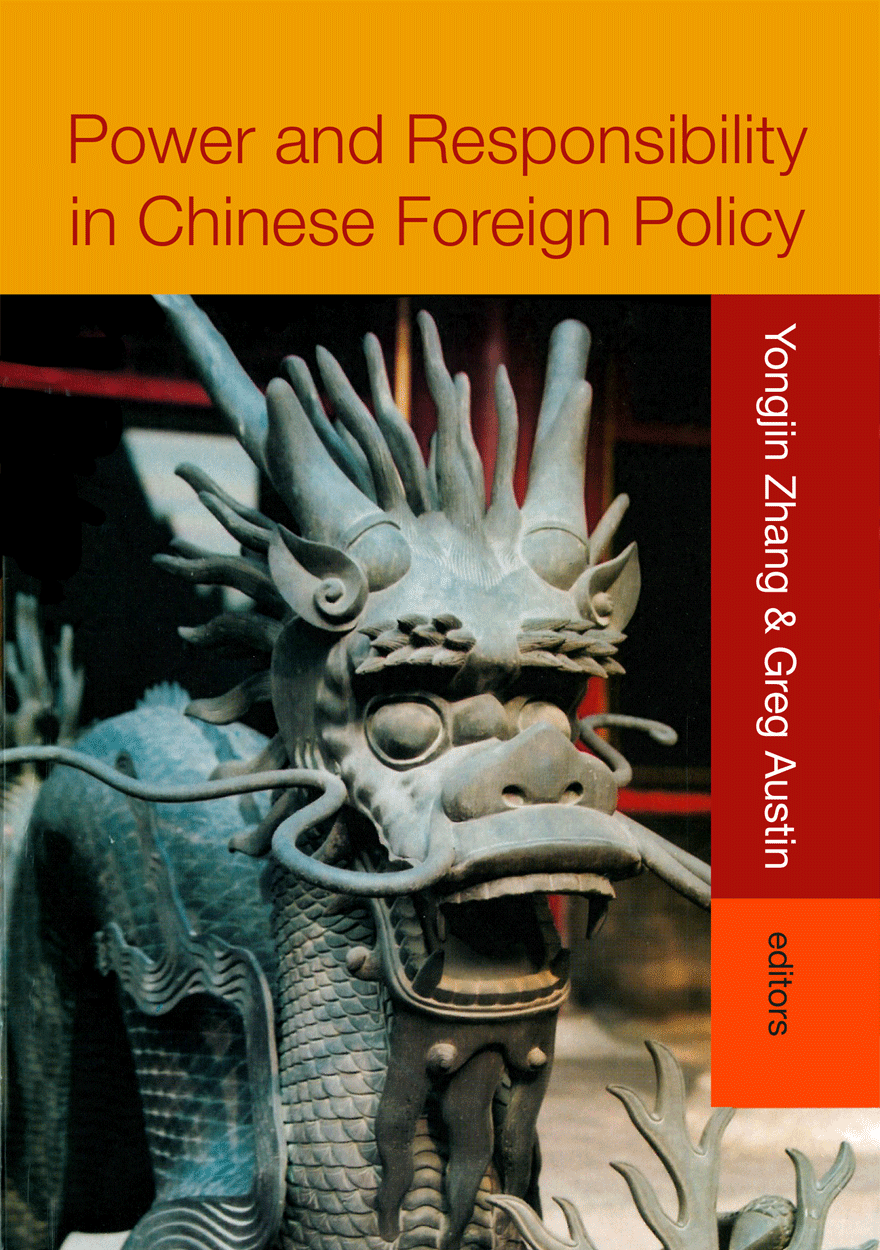
Power and Responsibility in Chinese Foreign Policy »
Edited by: Yongjin Zhang, Greg Austin
Publication date: January 2014
The People’s Republic of China is now over fifty years old. Long considered an outsider, or a club of one, in international relations, China has recently become more active in international institutions. Is China becoming a responsible power in global and regional international relations? How accurate is the traditional perception of China? What factors may be motivating the changes in China’s approach to international institutions and its perceptions of its own role in the world? There is no certainty that China is becoming a more responsible power, recent developments may be just another manifestation of realpolitik.
Power and Responsibility in Chinese Foreign Policy provides a vital insight into these issues, analysing the critical issues in China’s international relations– China’s regional and global diplomatic and security problems, the changing role of the People’s Liberation Army, human rights, religious and democratic movements, and the concept of responsibility. Power and Responsibility in Chinese Foreign Policy is an insightful and vital introduction to all sides of the current debate over China’s international relations.
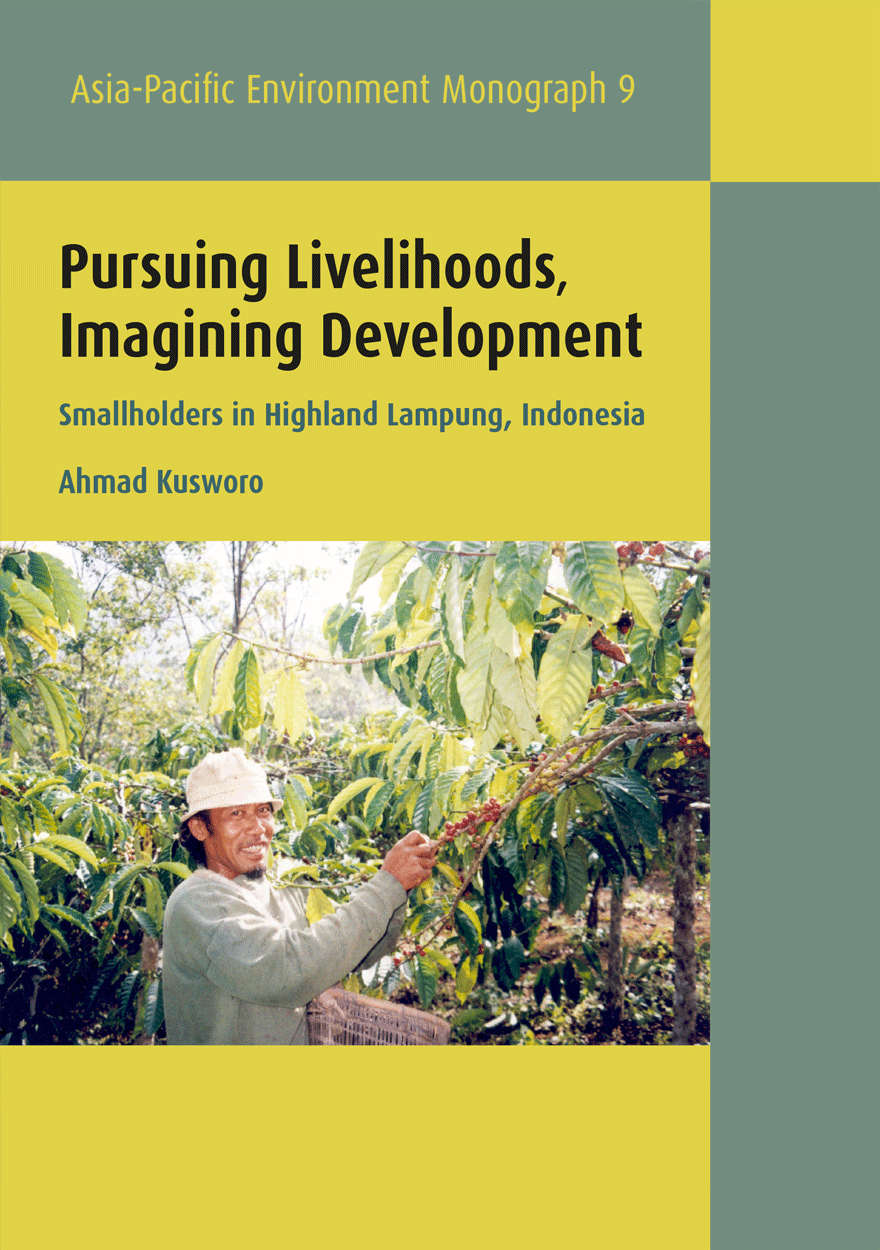
Pursuing Livelihoods, Imagining Development »
Smallholders in Highland Lampung, Indonesia
Authored by: Ahmad Kusworo
Publication date: January 2014
This monograph explores the ways in which people experience ‘development’ and how development shapes and maintains their lives. The discussion begins with Lampung Province, moves to one of the province’s highland regions, and ends in a village in this highland region. Colonial and post-colonial initiatives drove the transformation of Lampung in the twentieth century bringing mixed results and effects including rapid growth in agricultural production, the formation of ‘wealthy zones’ in some areas, and the creation of pockets of poverty in other areas. In Sumber Jaya and the highlands of Way Tenong, migrants have transformed one of Lampung’s last frontier regions into one of its ‘wealthy zones’. Although the bulk of these migrants migrated spontaneously, they were integrated within the framework of planned development. The level of progress that the region has achieved is largely the result of villagers’ efforts to bring state resources to the village. In conflict with forestry authorities for decades, farmers in some villages have agreed to establish a new relationship with authorities, but the struggle for control over land resources continues.

ANU Undergraduate Research Journal: Volume Six, 2014 »
Publication date: January 2014
The ANU Undergraduate Research Journal presents outstanding essays taken from ANU undergraduate essay submissions. The breadth and depth of the articles chosen for publication by the editorial team and reviewed by leading ANU academics demonstrates the quality and research potential of the undergraduate talent being nurtured at ANU across a diverse range of fields.
Established in 2008, AURJ was designed to give students a unique opportunity to publish their undergraduate work; it is a peer-reviewed journal managed by a team of postgraduate student editors, with guidance from the staff of the Office of the Dean of Students.
Download for free
Not available for purchase
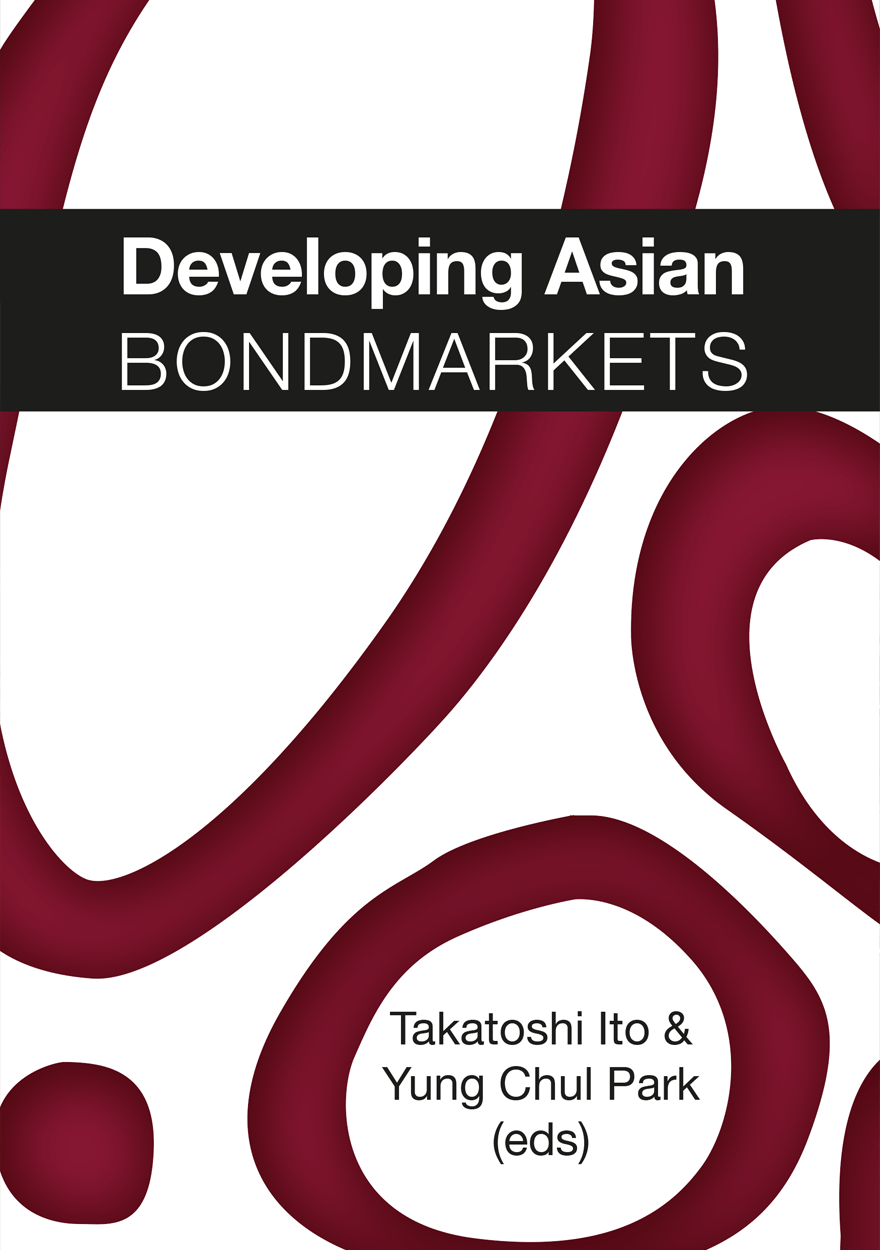
Developing Asian Bondmarkets »
Edited by: Takatoshi Ito, Yung Chul Park
Publication date: January 2014
The absence of vibrant bondmarkets in East Asia was a significant contributor to the 1997–98 financial crisis. Ever since, the development of local bondmarkets has been a major objective of financial reforms in many East Asian economies. This effort has been frustrated by the inability to reach a consensus on whether Asian bondmarkets are truly needed in East Asia, whether they can be made viable in the competitive environment of the global economy, how they should be created and what role intergovernmental cooperation should play in their definition and creation.
Developing Asian Bondmarkets helps build this consensus, proposing how to develop robust and efficient bondmarkets in East Asia.
This book, the first of its kind, comes from the Finance Forum of the Pacific Economic Cooperation Council.
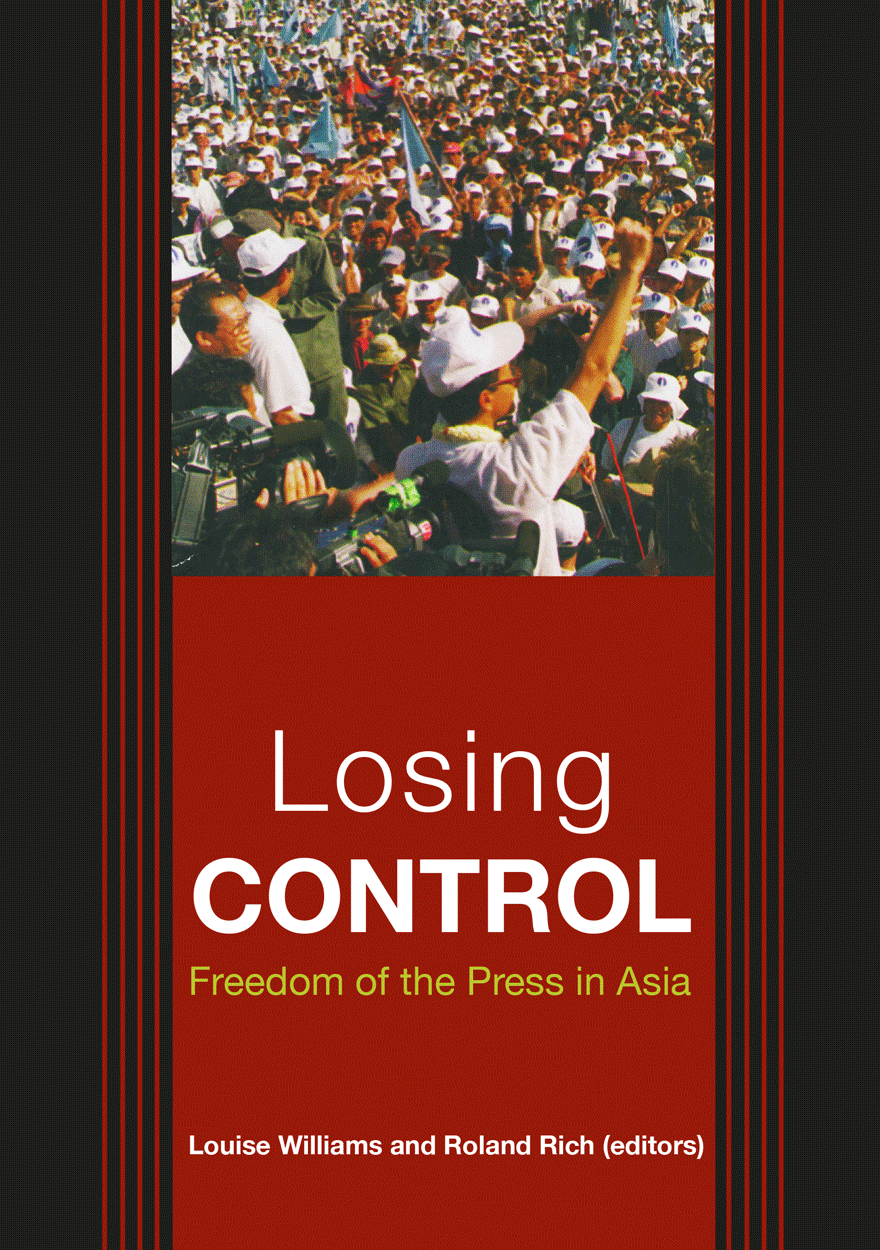
Losing Control »
Freedom of the Press in Asia
Edited by: Louise Williams, Roland Rich
Publication date: January 2014
‘A free press is not a luxury. A free press is at the absolute core of equitable development’ according to World Bank President James Wolfensohn. A free press is also the key to transparency and good governance and is an indispensable feature of a democracy. So how does Asia rate? In Losing Control, leading journalists analyse the state of play in all the countries of North Asia and Southeast Asia. From the herd journalism of Japan to the Stalinist system of North Korea, Losing Control provides an inside look at journalism and freedom of the press in each country. One conclusion—a combination of new technology and greater democracy is breaking the shackles that once constrained the press in Asia.
‘Brings together Asia’s best and brightest observers of the press.’
Hamish McDonald, Foreign Editor, The Sydney Morning Herald
‘A rare insiders’ view exposing the real dynamics behind social and political change in Asia.’
Evan Williams, Foreign Correspondent, ABC TV
‘A timely and necessary contribution to the debate over the quality of freedom in Asia.’
Geoffrey Barker, The Australian Financial Review
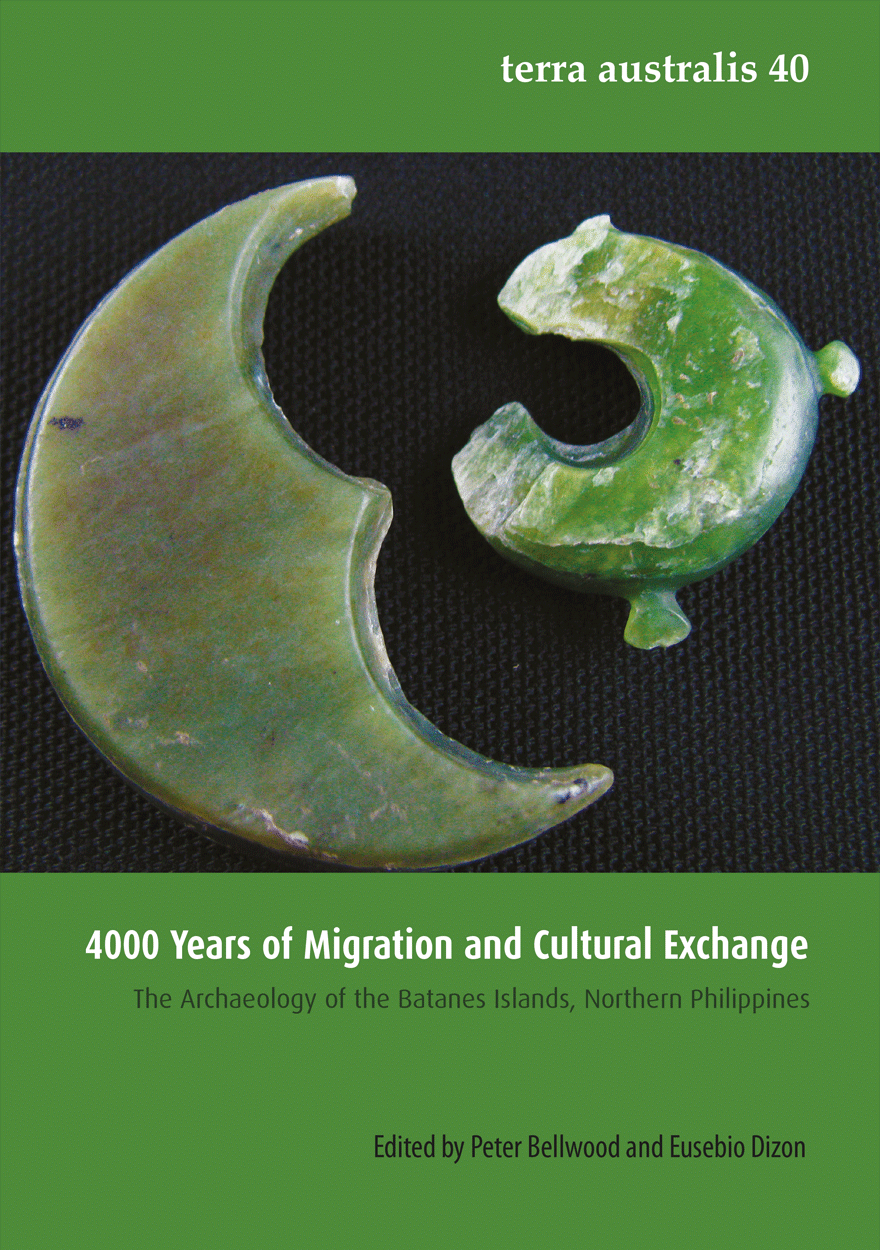
4000 Years of Migration and Cultural Exchange »
The Archaeology of the Batanes Islands, Northern Philippines
Edited by: Peter Bellwood, Eusebio Dizon
Publication date: December 2013
The project reported on in this monograph has been concerned with the archaeology of the Batanes Islands, an archipelago that must have been settled quite early in the process of Austronesian dispersal from Taiwan southwards into the Philippines. A multi-phase archaeological sequence covering the past 4000 years for the islands of Itbayat, Batan, Sabtang and Siayan is presented, extending from the Neolithic to the final phase of Batanes prehistory, just prior to the late 17th century arrivals of foreign navigators such as Jirobei (Japan) and William Dampier (England), followed by the first Spanish missionaries. So far, no traces of preceramic settlement have been found in Batanes, but the archaeological sequence there from the Neolithic onwards, like that in the Cagayan Valley in northern Luzon, is now one of the best-established in the Philippines.
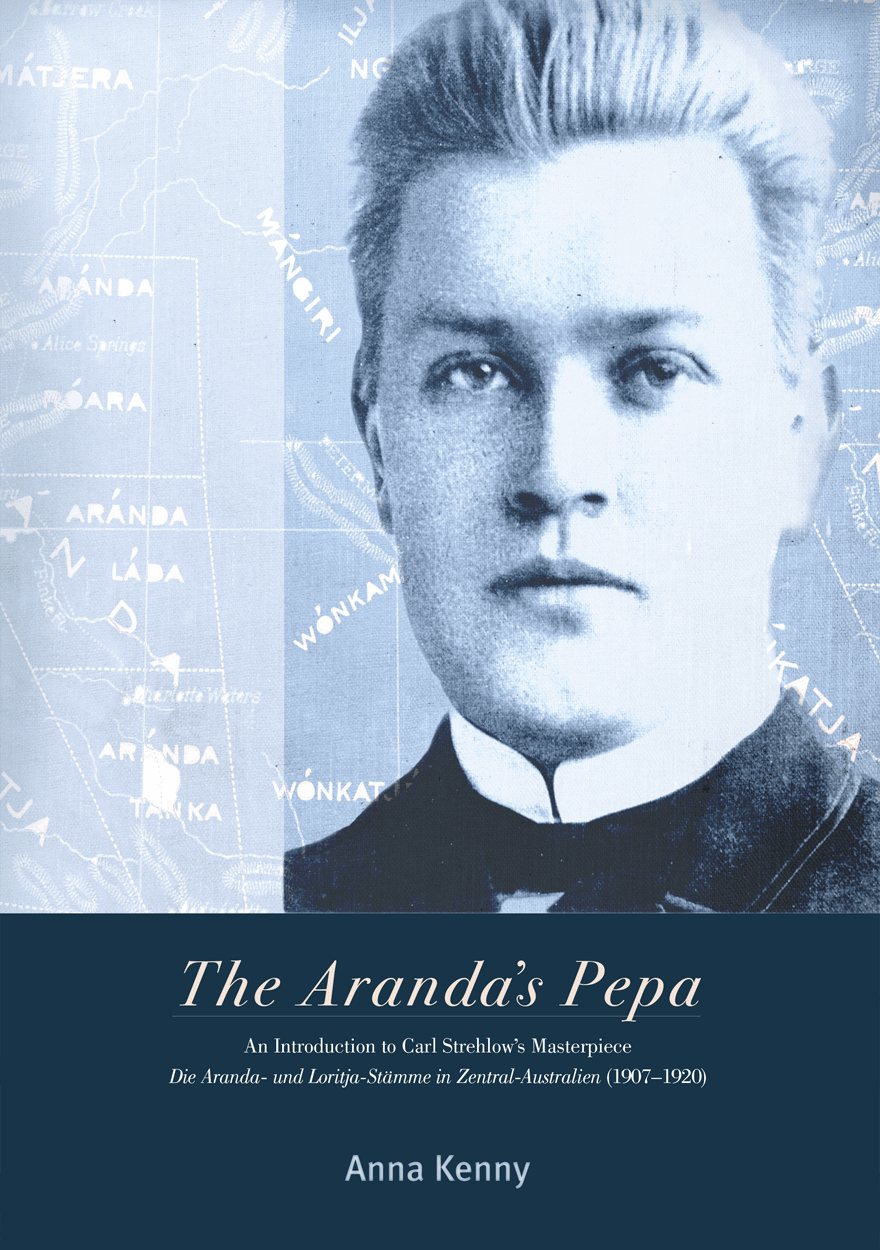
The Aranda's Pepa »
An introduction to Carl Strehlow’s Masterpiece Die Aranda- und Loritja-Stämme in Zentral-Australien (1907-1920)
Authored by: Anna Kenny
Publication date: December 2013
The German missionary Carl Strehlow (1871-1922) had a deep ethnographic interest in Aboriginal Australian cosmology and social life which he documented in his 7 volume work Die Aranda- und Loritja-Stämme in Zentral-Australien that remains unpublished in English. In 1913, Marcel Mauss called his collection of sacred songs and myths, an Australian Rig Veda. This immensely rich corpus, based on a lifetime on the central Australian frontier, is barely known in the English-speaking world and is the last great body of early Australian ethnography that has not yet been built into the world of Australian anthropology and its intellectual history.
The German psychological and hermeneutic traditions of anthropology that developed outside of a British-Australian intellectual world were alternatives to 19th century British scientism. The intellectual roots of early German anthropology reached back to Johann Gottfried Herder (1744-1803), the founder of German historical particularism, who rejected the concept of race as well as the French dogma of the uniform development of civilisation. Instead he recognised unique sets of values transmitted through history and maintained that cultures had to be viewed in terms of their own development and purpose. Thus, humanity was made up of a great diversity of ways of life, language being one of its main manifestations. It is this tradition that led to a concept of cultures in the plural.

Building a Sustainable and Desirable Economy-in-Society-in-Nature »
Authored by: Robert Costanza, Gar Alperovitz, Herman Daly, Joshua Farley, Carol Franco, Tim Jackson, Ida Kubiszewski, Juliet Schor, Peter Victor
Publication date: December 2013
The world has changed dramatically. We no longer live in a world relatively empty of humans and their artifacts. We now live in the “Anthropocene,” era in a full world where humans are dramatically altering our ecological life-support system. Our traditional economic concepts and models were developed in an empty world. If we are to create sustainable prosperity, if we seek “improved human well-being and social equity, while significantly reducing environmental risks and ecological scarcities,” we are going to need a new vision of the economy and its relationship to the rest of the world that is better adapted to the new conditions we face. We are going to need an economics that respects planetary boundaries, that recognizes the dependence of human well-being on social relations and fairness, and that recognizes that the ultimate goal is real, sustainable human well-being, not merely growth of material consumption. This new economics recognizes that the economy is embedded in a society and culture that are themselves embedded in an ecological life-support system, and that the economy cannot grow forever on this finite planet.
In this report, we discuss the need to focus more directly on the goal of sustainable human well-being rather than merely GDP growth. This includes protecting and restoring nature, achieving social and intergenerational fairness (including poverty alleviation), stabilizing population, and recognizing the significant nonmarket contributions to human well-being from natural and social capital. To do this, we need to develop better measures of progress that go well beyond GDP and begin to measure human well-being and its sustainability more directly.

The Curious Country »
Edited by: Leigh Dayton
Publication date: December 2013
By definition scientists are an inquisitive lot. But what are the scientific curiosities and concerns on the minds of Australians? What worries them, baffles them, and sets their curiosity meter to 10 out of 10? To find out, the Office of the Chief Scientist (OCS) took the nation’s intellectual temperature, surveying 1186 Australians: men and women aged 18 to 65, from all education levels and locations around Australia.
The results frame this book: a collection of essays covering the diverse areas of science Australians are curious about. Edited by eminent science writer Leigh Dayton and including a foreword from Australia’s Chief Scientist, Ian Chubb. The collection covers a range of issues, including food and farming technology, environmental upheaval, health, fuel and energy technology and space exploration.

Fire Mountains of the Islands »
A History of Volcanic Eruptions and Disaster Management in Papua New Guinea and the Solomon Islands
Authored by: R. Wally Johnson
Publication date: December 2013
Volcanic eruptions have killed thousands of people and damaged homes, villages, infrastructure, subsistence gardens, and hunting and fishing grounds in Papua New Guinea and the Solomon Islands. The central business district of a town was destroyed by a volcanic eruption in the case of Rabaul in 1994. Volcanic disasters litter not only the recent written history of both countries—particularly Papua New Guinea—but are recorded in traditional stories as well. Furthermore, evidence for disastrous volcanic eruptions many times greater than any witnessed in historical times is to be found in the geological record. Volcanic risk is greater today than at any time previously because of larger, mainly sedentary populations on or near volcanoes in both countries. An attempt is made in this book to review what is known about past volcanic eruptions and disasters with a view to determining how best volcanic risk can be reduced today in this tectonically complex and volcanically threatening region.
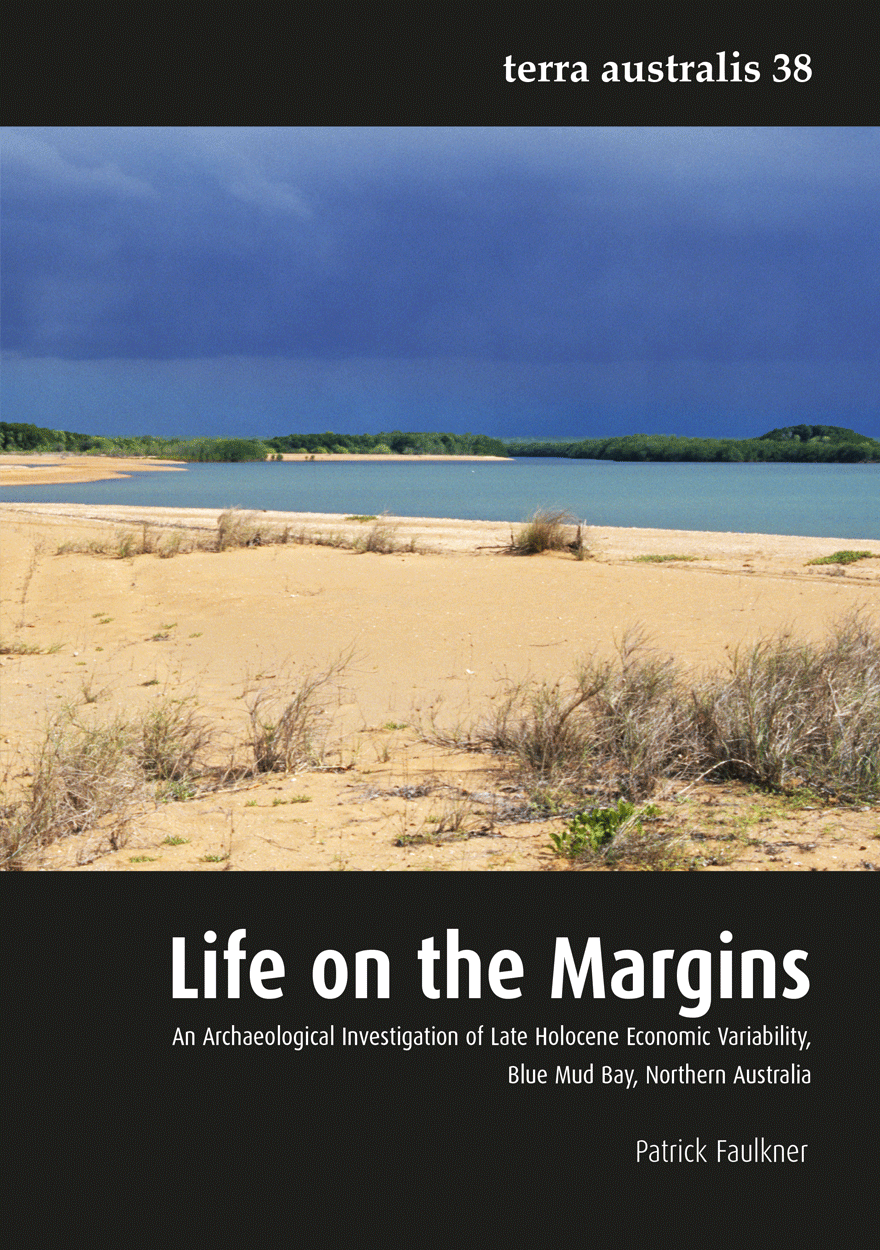
Life on the Margins »
An Archaeological Investigation of Late Holocene Economic Variability, Blue Mud Bay, Northern Australia
Authored by: Patrick Faulkner
Publication date: December 2013
The research presented here is primarily concerned with human-environment interactions on the tropical coast of northern Australia during the late Holocene. Based on the suggestion that significant change can occur within short time-frames as a direct result of interactive processes, the archaeological evidence from the Point Blane Peninsula, Blue Mud Bay, is used to address the issue of how much change and variability occurred in hunter-gatherer economic and social structures during the late Holocene in coastal northeastern Arnhem Land. The suggestion proposed here is that processes of environmental and climatic change resulted in changes in resource distribution and abundance, which in turn affected patterns of settlement and resource exploitation strategies, levels of mobility and, potentially, the size of foraging groups on the coast. The question of human behavioural variability over the last 3000 years in Blue Mud Bay has been addressed by examining issues of scale and resolution in archaeological interpretation, specifically the differential chronological and spatial patterning of shell midden and mound sites on the peninsula in conjunction with variability in molluscan resource exploitation. To this end, the biological and ecological characteristics of the dominant molluscan species is considered in detail, in combination with assessing the potential for human impact through predation. Investigating pre-contact coastal foraging behaviour via the archaeological record provides an opportunity for change to recognised in a number of ways. For example, a differential focus on resources, variations in group size and levels of mobility can all be identified. It has also been shown that human-environment interactions are non-linear or progressive, and that human behaviour during the late Holocene was both flexible and dynamic.

On the Dual Uses of Science and Ethics »
Principles, Practices, and Prospects
Edited by: Brian Rappert, Michael J. Selgelid
Publication date: December 2013
Claims about the transformations enabled by modern science and medicine have been accompanied by an unsettling question in recent years: might the knowledge being produced undermine – rather than further – human and animal well being? On the Dual Uses of Science and Ethics examines the potential for the skills, know-how, information, and techniques associated with modern biology to serve contrasting ends. In recognition of the moral ambiguity of science and technology, each chapter considers steps that might be undertaken to prevent the deliberate spread of disease. Central to achieving this aim is the consideration of what role ethics might serve. To date, the ethical analysis of the themes of this volume has been limited. This book remedies this situation by bringing together contributors from a broad range of backgrounds to address a highly important ethical issue confronting humanity during the 21st century.



